Por: Santiago Alba Rico. Cuarto Poder. 14/07/2017
El escritor Helios Fernández Garcés, uno de los más lúcidos y brillantes teóricos del antirracismo decolonial en nuestro país, publicaba hace una semana en Diagonal un artículo con el que pretendía abrir un debate en torno a la insoslayable cuestión del “racismo y la izquierda” en una Europa que cierra fronteras en el exterior, pero que carga desde hace siglos con sus propias fronteras internas. Las líneas que siguen son una tentativa de sumarme a ese debate planteando algunas dudas que –estoy seguro– franquearán nuevas sendas de entendimiento y divergencia en esta necesaria discusión.
En un interesante debate de 1988 recogido en el libro Raza, nación y clase, los marxistas Wallerstein y Balibar diferían sobre la relación de mayor o menor autonomía del racismo respecto del capitalismo y del mercado. Balibar, que asociaba el racismo más bien al nacionalismo, criticaba a los antirracistas que identifican el racismo con la “ausencia de pensamiento”, recordando que, al contrario, el racismo es una forma de pensar y que “cambiar una forma de pensar es lo más difícil que existe”. Wallerstein, por su parte, insistía en la funcionalidad de las diferencias de raza y sexo en el seno de la economia-mundo capitalista y atribuía al universalismo formal el papel de un freno interno que conjuraría el peligro de esos “nihilismos” racistas, del tipo fascista y nazi, que podrían destruir el sistema desde el interior.
El libro de Wallerstein y Balibar mantiene en buena parte su vigencia, pero revela también los límites del pensamiento marxista y las transformaciones –algunas anticipadas por el propio Balibar– que ha experimentado el mundo en los últimos 30 años.
El racismo ya no es “una forma de pensar”. Ya no es una “teoría” y mucho menos una teoría de raíz biologicista, como lo fue en Chamberlain o Gobineau y, desde luego, durante la primera mitad del siglo XX. Nadie “piensa” ya que existan razas ni que determinen nuestra posición social. Nadie “piensa” que los gitanos sean ladrones por naturaleza, los negros menos inteligentes y los moros rijosos y astutos desde la cuna. El grado de destrucción de la Segunda Guerra Mundial, en efecto, dio paso a un “universalismo” piadoso, bajo cuyas plumas se han seguido empollando todas las diferencias, pero lo cierto es que ahora, cuando el universalismo sucumbe definitivamente en una Europa en crisis, varada con el colonialismo dentro, cuando los derechos devienen privilegios, cuando hay que repartirse entre pocos lo que dejan los ricos, no vuelve la “raza”, como cabría esperar, sino que es la cultura la que decide en su lugar entre los buenos y los malos, entre los dignos y los indignos, entre “nosotros” y “ellos”.
Nadie “piensa” ya racista y por eso el racismo es más “libre” y más decisivo que nunca. El racismo no es una forma de pensar, sino una forma de mirar, gesticular, afirmar el espacio, decidir sin palabras el destino del otro. Una actitud general que permite, al mismo tiempo, “pensarse” como no racista o, en el caso de la islamofobia, “pensar” categorías de exclusión pretendidamente inscritas en la tradición ilustrada y en los derechos humanos: en el laicismo, por ejemplo, o en el feminismo. Este “racismo sin raza”, que ya anticipaba con inquietud Balibar en 1988, y que ha puesto a la propia izquierda francesa en manos del Frente Nacional, es justamente criticada por Helios Fernández Garcés en su artículo de Diagonal. En la linea del pensamiento decolonial y de los Indigènes de la République, Fernández Garcés reprocha con razón al marxismo esa especie de pensamiento mágico que, a partir de la reducción de todos los conflictos a la “contradicción principal” (la de clase), pretendería voltear el mundo desde un solo punto y con un solo gesto, y ello de tal suerte que, mediante este birlibirloque, no sólo ha acabado por ignorar o menospreciar otros conflictos centrales sino que, a fuerza de ignorarlos, los ha reproducido tanto en el mundo exterior como en sus propias filas. El caso del colonialismo y el racismo (o el del sexismo) son sin duda tan banales como evidentes.
Un mundo “sin pensamiento racista” es, en realidad, un mundo plenamente racista y para combatirlo lo primero que hay que hacer es reflotar el concepto que quieren escamotearnos: hay que sacar del armario “la raza”, reivindicar la “raza”, politizar la “raza” como sujeto e instrumento de lucha. Los racistas no quieren que pronunciemos la palabra: gritémosla; los que nos tratan como “negros” se niegan a llamarnos así: llamémoslos nosotros “blancos” con el mismo desprecio que oculta su silencio cuando no nos llaman “negros”.
Ahora bien. Conviene saber qué es esto de “raza” allí donde estamos de acuerdo en que no tiene ningún fundamento biológico. La raza es una historia en el cuerpo; y una historia, como la del hierro sobre el ganado, de intervención performativa desde un poder desigual. “Clasificar es pensar”, dice Balibar, “y pensar es existir”. El “racismo” está potencialmente activo en el embrión mismo de las relaciones sociales; es inseparable de la existencia humana y, si deviene jerarquizante y destructivo, es porque los cuerpos son objeto no sólo de clasificación, sino de sujeción y dominio. Eso es justamente lo que hay que pensar.
La “raza” es la matriz simbólica de las relaciones de poder desiguales porque, no importa de cuál se trate, todo poder dominante encierra en su propio cuerpo a los dominados. Hay que hablar, pues, de una racialización “natural” del sometido, del subalterno, del excluido, del explotado, y ello hasta tal punto que puede localizarse un elemento “racial” en todas las estructuras de poder económico o cultural: en el patriarcado, la homofobia, el esclavismo o el clasismo. Todas estas formas de dominio han estado íntimamente articuladas en la relación de dominio que la Europa histórica ha ejercido sobre buena parte del resto del mundo: el colonialismo. Fernández Garcés tiene mucha razón en reprochar a la izquierda (más anti-imperialista que anti-colonialista) su silencio o indiferencia, que en el caso de España afecta a un “cuerpo” interno permanentemente racializado: los gitanos.
El colonialismo occidental, por así decirlo, ha encerrado sin salida en el cuerpo de sus víctimas cuatro o cinco formas de sujeción diferentes. Es lógico, por tanto, que un sector militante del pensamiento decolonial interprete la liberación como un restablecimiento de los cuerpos en la primera línea de combate. Al “blanco” lo llamamos “blanco”, porque se cree espiritual, porque se cree bueno, porque se cree menos cuerpo que nosotros; porque olvida, en definitiva, el cuerpo a cuerpo mediante el cual lleva siglos sometiendo a otros pueblos.
Hay que señalar a los “blancos”, constituirlos en objeto de conocimiento, encerrarlos también en sus cuerpos. Porque frente a ellos, los “blancos”, están los “no-blancos”, esos a los que Hegel llamaba “negros”, es decir, todos aquellos que se “benefician” de una relación colonial directa o indirecta, incapaces como son de “ningún desarrollo cultural”, tan incapaces que permanecerían eternamente “fuera de la historia” si no lo evitara la intervención “blanca”: “La única conexión esencial entre los negros y los europeos es la esclavitud”, dice el filósofo alemán, y añade a continuación: “La esclavitud ha sido la oportunidad para el aumento del sentimiento humano entre los negros”. La extraordinaria novelista negra Toni Morrison llama “racismo” a las consecuencias que esta “conexión esencial” tuvo para los europeos: “Los volvió locos”, “rompió Europa”, “se deshumanizaron al tiempo que deshumanizaban a los esclavos” y todo eso hizo posible, dice, la Primera y la Segunda Guerras Mundiales como ápices siniestros del horror humano. En términos históricos sabemos que este proceso de racialización del “no-blanco”, asociado a la empresa colonial, implica a partir de la Revolución Francesa la sustitución de la Religión por la Civilización como motor de la conquista.
Ahora bien, el problema de los pensamientos binarios es que son “muy europeos” y “muy izquierdistas” y también lo es, en este sentido, la oposición blanco/noblanco con la que se quiere denunciar y superar la clásica oposición marxista burguesía/proletariado. El rescate del concepto escamoteado de “raza” para combatir el racismo –liberado ahora en el silencio– presenta a mi juicio tres problemas.
El primero, es que hace con los “blancos” lo mismo que hace el marxismo clásico con los “burgueses”: los encierra en una “jaula epistemológica”, que acaba siendo más ontológica que la raza biológica y que pemite muy pocas diferencias internas y, desde luego, ningún “arrepentimiento” lo bastante profundo como para que los “blancos” nos liberemos de nuestra “blanquitud”. Tan blanco es Robespierre, que abolió la esclavitud, como Napoleón, que la restableció, tan blanco es Bartolomé de las Casas o la Escuela de Salamanca como Sepúlveda y Torquemada, tan blanco es Thomas Müntzer y los campesinos rebeldes de 1520 como Lutero y el Emperador, tan blanco Sultan Galiev como Stalin, tan blanca la historiadora ilustrada Florence Gauthier como Sarkozy. Este antirracismo decolonial, en definitiva, no reconoce que, más allá de los gitanos y de los musulmanes, ha habido y puede haber un indigenismo europeo racializado en el interior por la Europa colonial, un “indigenismo” cuyas resistencias mal integradas y a veces recíprocamente pugnaces –mujeres, campesinos, trabajadores, homosexuales, etcétera– no fueron y no siempre son una simple función de reproducción de la Europa colonial y su jaula epistemológica.
El segundo problema es que, el antirracismo racial hace con los no-blancos lo mismo que hace el marxismo clásico con los “proletarios”: los convierte en un Sujeto liberador pastoso, universalmente particular, cuya legitimidad es siempre reactiva y por lo tanto “irresponsable”, un Sujeto al que se perdona todo salvo el “colaboracionismo blanco”, lo que incluye cualquier autocrítica que recoja rastros de la “epistemología blanca”: feminismo, por ejemplo, o laicismo, explotables –es verdad– por la infame “conexión esencial”. La oposición blanco/noblanco oculta o reprime las diferencias entre los no-blancos, a los que se exige que, como los blancos, hablen con una sola voz, so pena de convertirse en “blancos voluntarios”.
El tercero es que, como el marxismo clásico, una vez asentada en una oposición irreconciliable, la reivindicación “racial” se siente tentada por la violencia o tentada a justificar o celebrar cualquier forma de violencia, simbólica o real, dirigida contra los “blancos”. Frente al “primero los blancos” de la ultraderecha europea, el “primero los cuerpos” considera cualquier marca impuesta al cuerpo de los “blancos” como una victoria, y ello venga de donde venga, incluidas las versiones más fanáticas de la religión. Toda violencia “no-blanca” es emancipatoria o, al menos, reveladora de la violencia “blanca” y, en ese sentido, potencialmente decolonial. Se convierte el colonialismo en “contradicción principal”, en sustitución del capitalismo, y se llega al mismo resultado sumario y oscurecedor.
En último lugar y vinculado al punto anterior, la reivindicación “racial” es puramente reactiva, deconstructiva y negativa. Invirtiendo el adagio spinozista, para ella “toda negación es afirmación”. Al igual que el marxismo clásico, no ofrece ningún criterio epistemológico ni ninguna alternativa política. “¿Para qué desmontar si podemos demoler?”, dice un famoso aforismo de Lichtenberg. Ese principio parece a menudo inspirar la militancia anti-blanca. ¿Desde dónde hablan los que hablan desde fuera de la “jaula epistemológica”? ¿Quién decide quién está dentro y quién está fuera? ¿Qué hay en el exterior que deba atraer no ya a los “blancos”, descartados por su blanquitud, ni a los “humanos”, inexistentes en su generalidad, sino a los no-blancos en proceso de liberación?
El acierto de la posición de Fernández Garcés y de la tradición decolonial de la que se reclama heredero es innegable a la hora de criticar a la izquierda clásica y de recordar que, puesto que la batalla se juega cada vez más en el cuerpo a cuerpo del relato identitario, es necesario liberarse desde ahí. Pero permítaseme acabar descendiendo a la caricatura a fin de evidenciar las aporías del anrirracismo racial mediante una reducción al absurdo. Soy hombre, soy blanco y soy burgués. ¿Qué hago con esto? Si no tiene remedio, si estoy atrapado en esa triple condición como en una “jaula espistemológica” y, al mismo tiempo, soy o me creo bueno, lo único que puedo hacer es “repartirme la historia” con las mujeres, los “negros” y los “proletarios”: “nosotros” hemos dominado durante miles de años, ahora hay que dejar que dominen “ellos” el mismo tiempo. ¿Puedo ser algo más que un blanco “bueno”? ¿Se puede ser algo más que un “no-blanco” cargado de razón? ¿Se es sólo “blanco” o “negro” como la izquierda clásica quería que sólo hubiera burgueses o proletarios o cierto feminismo pretende que sólo hay hombres o mujeres? ¿O hay algún punto desde el que podamos mejorar objetivamente el mundo sin “reparto” de la injusticia ontologizada?
Cualquier lector de Kant sabe que la Razón, que es solo un esquema incapaz de proporcionarse sus propios contenidos, no puede ser colonial o racista o europea sin dejar de ser razonable; y que sólo es racista y europea y machista cuando se extralimita, es decir, cuando no se somete a sus propios límites. El colonialismo “blanco” es, si se quiere, la razón fuera de sus fronteras: la sinrazón. Al mismo tiempo, como bien explica Luis Alegre Zahonero en su libro El lugar de los poetas, cualquier lector de Kant sabe también que todas aquellos dilemas que no puede resolver la razón –que son innumerables– los debe resolver el “juicio” y no el indigenismo o la raza o la religión. Es a ese “juicio”, precario y siempre rozado por el mundo, a lo que yo llamo “civilización”, de manera provocativa, en el artículo que cita Helios Fernández Garcés en el suyo. Conozco muy bien, y he escrito largamente sobre ello, el uso que el colonialismo ha hecho de ese término con el fin de “teologizar” la conquista colonial. Pero es que la conquista colonial es lo contrario de la civilización, concepto que hay que pensar más bien, como hace Toni Domenech, frente a la práctica de la “domesticación”: la conversión –es decir– de ciertos grupos humanos en animales domésticos. No me parece un negocio rentable rescatar la “raza” y entregar a los colonizadores, los machistas, los racistas y los homófobos “la civilización”. Si es colonialismo no es civilización; si es machismo no es civilización, si es racismo y homofobia no es civilización. Todo eso es, sí, barbarie domesticadora.
De acuerdo: no sabemos muy bien lo que es la civilización, pues está en construccion y porque hay que construirla con juicio y por lo tanto con cautela máxima y siempre al borde del abismo, pero sí sabemos, en cambio, lo que es la barbarie: la esclavitud, el patriarcado, la jerarquización sexual o racial del mundo, la persecución religiosa (ya sea laica o teocrática). Tirar a la basura los logros civilizatorios, que son los del Derecho y los de los derechos cuidadosos, sólo puede acelerar el concreto proceso de domesticación y barbarie global abierto por el colonialismo europeo hace siglos y agravado en las últimas décadas por el neoliberalismo. Necesitamos, pues, un antirracismo “juicioso” que rompa con el racismo escamoteado de la izquierda y su mágica “contradicción principal”, pero también con la lógica claustral de la jaula epistemológica y su cortocircuito sin salida. Necesitamos, sí, un antirracismo “juicioso” que explore con prudencia colectiva un frágil “afuera” común de todas las jaulas, epistémicas, sociales y políticas.
Fuente: https://www.cuartopoder.es/ideas/2017/03/25/racismo-y-antirracismo-en-que-jaula-estamos/
Fotografía: Los Replicantes
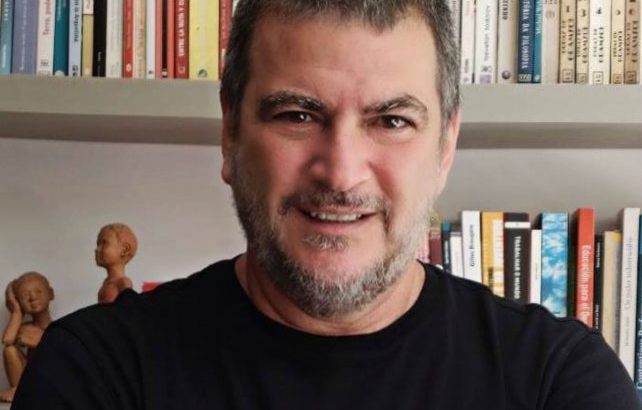
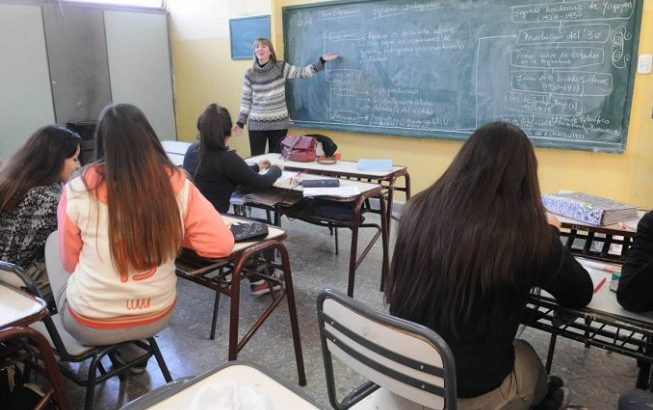
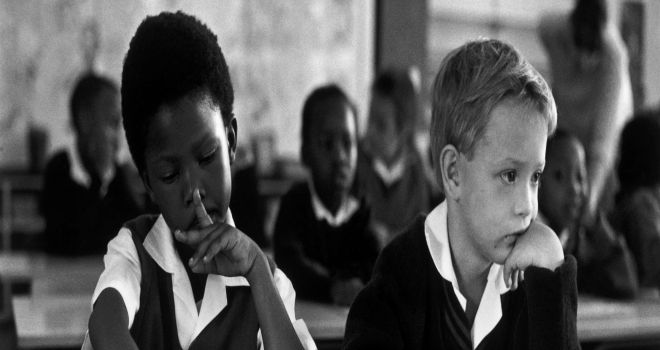
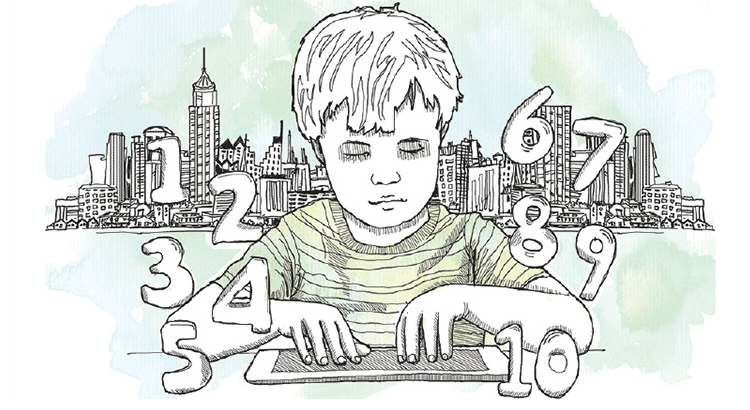
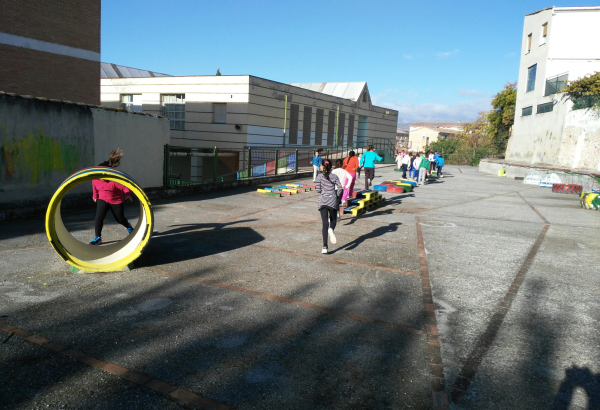
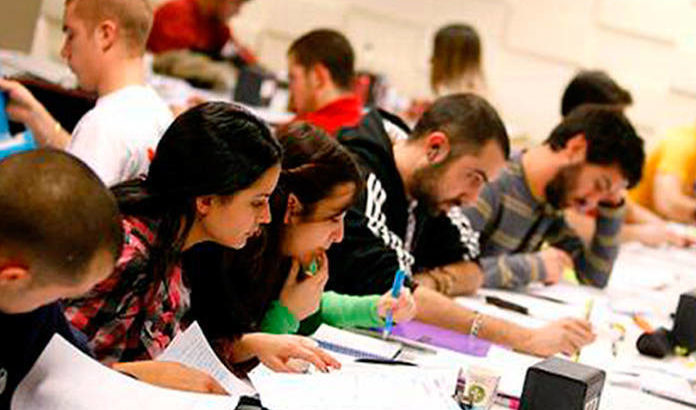








 Users Today : 30
Users Today : 30 Total Users : 35460293
Total Users : 35460293 Views Today : 40
Views Today : 40 Total views : 3419008
Total views : 3419008